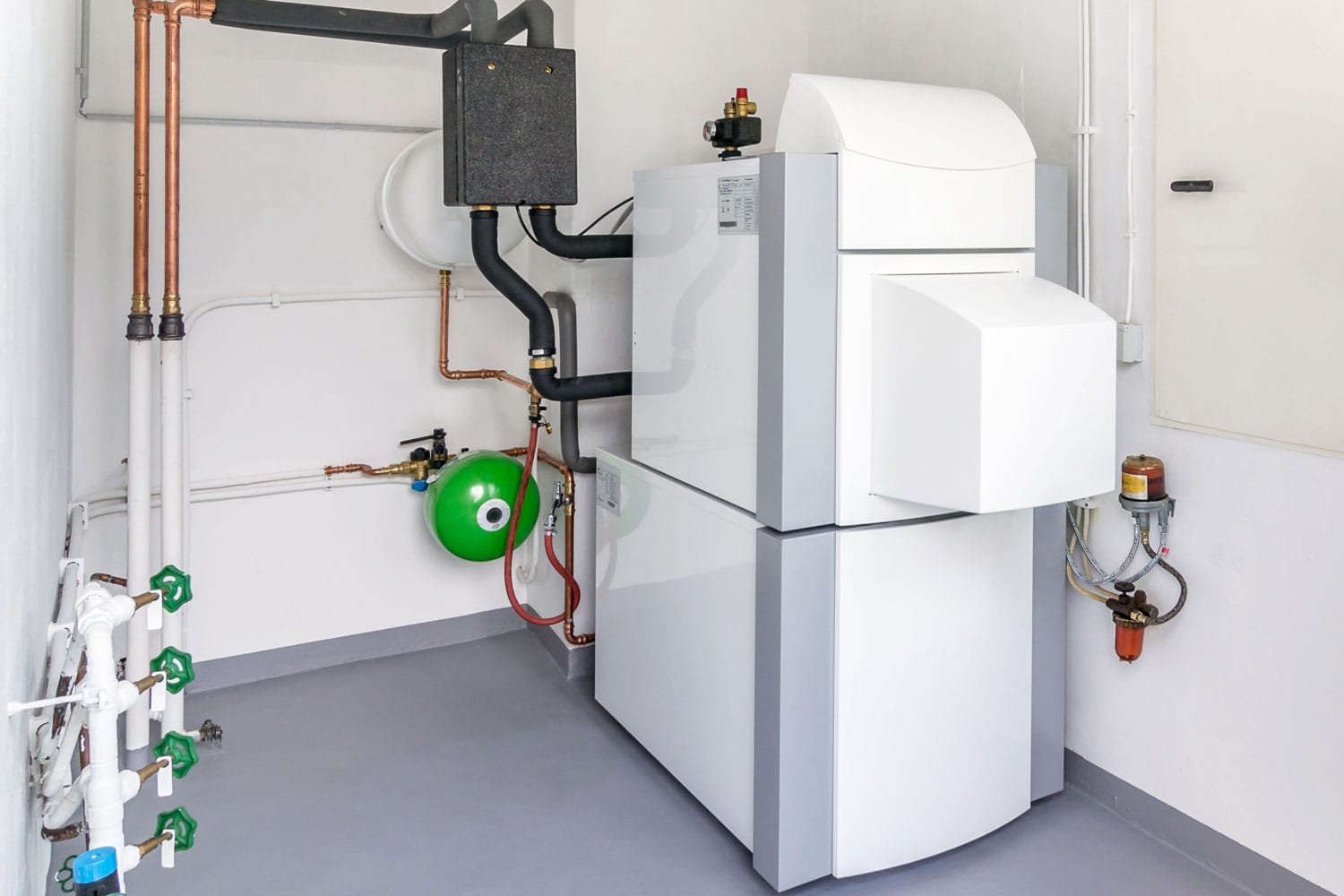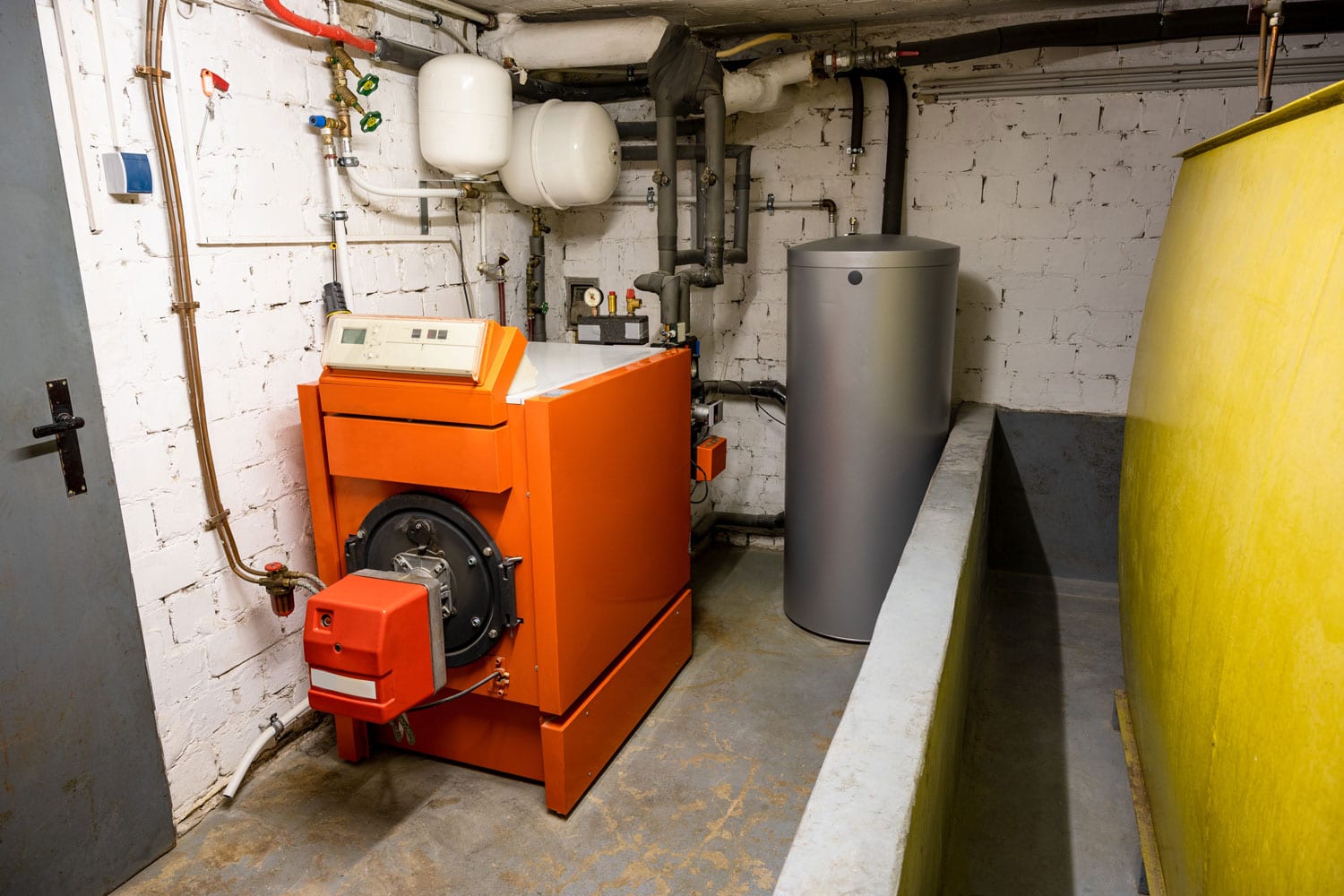Have you ever experienced your oil heating system shutting off unexpectedly?
It can be frustrating, especially during cold weather, when you need your heating system to function properly.

There are several reasons why your oil heating system may keep cutting off, and it's important to identify the root cause to prevent it from happening.
So, let's dive in and unravel the mysteries behind these interruptions to ensure you stay warm and cozy all winter long.
How Does an Oil Heating System Work?
An oil heating system burns heating oil in a boiler or furnace to produce heat. This heat then warms up water, steam, or air.
The warmed medium is then circulated throughout the house using pipes, radiators, or vents to provide warmth.

A thermostat controls the system: when the room's temperature drops, the thermostat signals the burner to ignite the heating oil, starting the heating process.
Understanding Oil Heating Lockout
Your oil heating system may be cut off periodically due to its built-in lockout safety feature.
An oil heating lockout is a protective mechanism designed to ensure the safe operation of your heating system.
When the system detects a potential issue, such as a malfunctioning component or a safety concern, it automatically shuts down the oil burner to prevent further problems.
Common triggers for lockout include a dirty or malfunctioning CAD cell, faulty ignition components, or a malfunctioning fuel pump.
To resolve a lockout, it's essential to address these issues and consult your system manual for reset instructions.
Also worth the read: Furnace Working But Not All Burners Lighting – What To Do?
Common Causes for Oil Heating Interruptions
It can be frustrating and uncomfortable if your oil heating keeps cutting off, especially during the cold winter.
There are several reasons why this might be happening.
Below, we've discussed some of the most common causes of oil heating interruptions and what you can do to fix these issues.
Dirty or Malfunctioning CAD Cell
A dirty or malfunctioning CAD cell is a common cause of oil heating interruptions. The CAD cell is a sensor that detects the flame in your oil burner.
If it is dirty or malfunctioning, it may not be able to detect the flame, causing your oil heating system to shut off.
Gently clean the CAD cell using a soft cloth. Consider a replacement if issues continue or the CAD cell appears damaged.
Tripped Reset Button
The tripped reset button is one of the most common causes of oil heating interruptions.
It is not a complex problem; you only have to identify and press the button. Commonly, it's a red button on the burner motor on the new models.
Clogged Filters
If you have clogged filters, you might notice a distinct whistling sound, which usually signals a problem with the filter.
The sound occurs because the airflow is restricted, often due to the buildup of dirt and dust inside the filter.
Rather than trying to clean a clogged filter, experts suggest a more efficient solution: regular replacement.
It's a good idea to replace the filter every one to three months. This ensures your furnace operates at its best and prevents interruptions in your heating system.
Malfunctioning Thermostats
Thermostats are the gatekeepers of your heating system, regulating when and for how long the furnace runs based on your temperature preferences.
When a thermostat malfunctions, it can disrupt the heating process, resulting in inconsistent warmth or no heat.
To address this issue, check the thermostat settings, ensuring it's set to "heat," and the temperature is higher than the current room temperature.
If it's battery-operated, replace the batteries. For hardwired thermostats, inspect the circuit breaker for any tripped breakers.
Additionally, examine the thermostat for loose or corroded wires, and reattach them to the terminal screws.
Burner Issues
The burner is the heart of your oil heating system, where oil is ignited to produce heat.
Any issues with the burner, such as a clogged burner nozzle, can impede proper heating. To address this, turn off the furnace and locate the burner.
Remove any soot or debris from the burner. If the burner nozzle is clogged, remove it, soak it in kerosene or diesel, and then wipe it clean with a rag.
Faulty Primary Control or Ignition Transformer
The primary control and ignition transformer are essential components for initiating the furnace.
When these components malfunction, the furnace may fail to turn on, resulting in no heat.
To troubleshoot, turn off the power supply to your furnace and inspect the primary control or ignition transformer for any visible damage or wear.
If you identify any issues, consider replacing them to restore proper furnace function.
Faulty Burner Motor or Fuel Pump
The burner motor and fuel pump are critical for your furnace's operation.
The burner motor powers the fan that distributes heat, while the fuel pump delivers oil from the tank to the burner.
When these components are faulty, they can cause interruptions in heating. Turn off your furnace and locate the burner motor or fuel pump to address this.
Inspect them for any visible damage or wear. If you observe issues, consider replacing these components to ensure consistent heating.
Safety Concerns and Precautions
When dealing with oil heating systems, it's essential to prioritize safety. Here are some safety concerns and precautions you should keep in mind:
Flammability
Heating oil is not flammable in its liquid state but can ignite when it vaporizes.
Therefore, keeping your heating system well-maintained is crucial to prevent leaks, spills, and other hazards.
If you detect any strange smells or noises, turn off your heating system right away and contact an expert.
Carbon Monoxide Poisoning
Carbon monoxide is an invisible, scentless gas that can be lethal if inhaled in high concentrations.
Oil heating systems can produce carbon monoxide if they're not functioning correctly, so it's essential to have your system inspected and serviced regularly.
Install carbon monoxide detectors to alert you if levels become dangerously high.
Get this carbon monoxide detector by clicking the link below.
See the Kidde Carbon Monoxide Detector on Amazon.
Tank Maintenance
Your heating oil tank needs regular maintenance to ensure it functions correctly and to prevent any leaks and spills. Here are some tank maintenance tips:
- Check your tank and fuel lines regularly for signs of leaks or damage.
- Keep your tank and surrounding area clear of debris and vegetation.
- Have your tank inspected and cleaned by a professional at least once a year.
Following these safety concerns and precautions ensures that your oil heating system is functioning safely and efficiently.
Why is My Heating Oil Running Out So Fast?
If you constantly refill your oil tank, you may wonder why your heating oil is running out quickly.
There are several reasons why this could be happening, including:
Leaking Tank
If your oil tank leaks, you could lose oil without even realizing it. Check your tank for any signs of damage or leaks, such as puddles or wet spots around the tank.
Contact a professional to repair or replace your tank if you suspect a leak.
Inefficient System
A weak heating system can use more oil than necessary to heat your home.
Consider upgrading to a newer, more energy-efficient system to save on heating costs and reduce oil usage.
Thermostat Settings
Your thermostat settings can also affect how much oil you use. If your thermostat is set too high, your system will use more oil to maintain the higher temperature.
Lowering your thermostat by just a few degrees can help reduce your oil usage.
Drafts and Air Leaks
Drafts and air leaks in your home can cause heat loss, increasing oil usage.
Check your home for any drafts or air leaks around windows, doors, and other areas. Sealing these areas can help reduce heat loss and save on heating costs.
How Often Should I Schedule Professional Check-Ups?
Most experts recommend scheduling a check-up at least once a year, ideally before the start of the winter season.
During a professional check-up, a qualified technician will inspect your system, clean it, and make any necessary repairs.
They will also check for potential problems and advise on maintaining your system between visits.
Regular check-ups can help extend the life of your system and save you money on costly repairs in the long run.
If you have an older system or notice any unusual noises or smells coming from your heating system, it may be wise to schedule more frequent check-ups.
Continue reading: Do Electric Furnaces Need Yearly Maintenance?
Wrap Up
As we've explored, several factors can lead to your oil heating system experiencing interruptions.
These interruptions may stem from issues like a malfunctioning CAD cell, blockages in the system, or faulty ignition components.
Swiftly addressing these concerns is crucial to prevent potential damage to your heating system.
To proactively mitigate such problems, regular maintenance and thorough cleaning of your oil heating system are advisable.
Furthermore, scheduling an annual inspection by a professional is essential to ensure your heating system's continued and reliable functionality.

